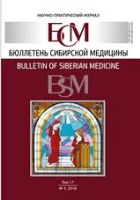
Cardiogenetics
Scope & Guideline
Advancing cardiovascular health through genetic insights.
Introduction
Aims and Scopes
- Genetic Epidemiology of Cardiovascular Diseases:
The journal emphasizes the study of genetic factors contributing to cardiovascular conditions, including inherited cardiomyopathies and arrhythmias, promoting a deeper understanding of how genetic predispositions influence disease risk and progression. - Innovative Genetic Testing and Diagnostic Techniques:
Research published often explores advanced methodologies for genetic testing, including exome sequencing and SNP analysis, aimed at improving diagnostic accuracy and patient stratification in cardiology. - Therapeutic Applications of Genetics in Cardiology:
The journal covers gene therapy and targeted treatment approaches that leverage genetic insights, focusing on innovative strategies for managing inherited cardiovascular disorders. - Integration of Artificial Intelligence in Cardiac Genetics:
There is a growing focus on incorporating AI and machine learning techniques to enhance the analysis of genetic data and improve diagnostic imaging in cardiomyopathies. - Interdisciplinary Approaches to Cardiogenetics:
The journal encourages collaboration across various disciplines, integrating molecular biology, clinical cardiology, and genetics to advance the understanding of heart diseases and develop comprehensive treatment strategies.
Trending and Emerging
- Inherited Cardiomyopathies and Arrhythmias:
There is an increased focus on the genetic basis of inherited cardiomyopathies and arrhythmias, reflecting a growing recognition of their impact on patient management and outcomes. - Role of COVID-19 in Cardiovascular Genetics:
Research exploring the cardiovascular implications of COVID-19, including genetic susceptibility and complications, has surged, highlighting the pandemic's influence on cardiovascular health. - Precision Medicine and Personalized Treatment Approaches:
A clear trend towards precision medicine is evident, with studies emphasizing genetic diagnostics to tailor treatment strategies for individual patients based on their genetic profiles. - Artificial Intelligence in Genetic Analysis:
The incorporation of AI in analyzing genetic data and imaging studies is gaining traction, indicating a shift towards more sophisticated methodologies in cardiogenetic research. - Genetic Screening and Risk Stratification:
There is a growing emphasis on genetic screening practices for early detection of cardiovascular risks, aiming to improve risk stratification and management in at-risk populations.
Declining or Waning
- General Cardiovascular Risk Factors:
Research on broad cardiovascular risk factors, such as hypertension or lifestyle influences, appears less frequently, suggesting a shift towards more specific genetic inquiries in cardiovascular pathology. - Traditional Pharmacological Approaches:
Studies focusing on conventional drug therapies without genetic context have diminished, indicating a movement towards personalized medicine that considers genetic profiles in treatment strategies. - Non-Genetic Cardiomyopathy Research:
There is a noticeable decrease in the publication of studies solely focused on non-genetic causes or management of cardiomyopathies, as the journal pivots towards genetic underpinnings and molecular mechanisms. - Epidemiological Studies without Genetic Focus:
Epidemiological research that does not incorporate genetic perspectives has become less common, reflecting a growing preference for studies that integrate genetic data into population health analyses.
Similar Journals

HUMAN GENETICS
Pioneering insights into human health and disease.HUMAN GENETICS, published by SPRINGER, stands as a cornerstone journal in the field of genetics, offering a wealth of research insights since its inception in 1964. Hailing from Germany, this esteemed journal boasts an impressive Q1 ranking in both Genetics and Clinical Genetics, marking it among the top quartile of journals in these categories for 2023. With a notable Scopus rank of #7 in Clinical Genetics and a percentile ranking of 93, HUMAN GENETICS attracts significant attention from researchers and professionals dedicated to advancing our understanding of genetic influences on human health and disease. Although it does not currently offer Open Access options, the journal provides a critical platform for scholarly communication, aimed at disseminating groundbreaking findings in genetics and biotechnology. As the field evolves, HUMAN GENETICS continues to play an instrumental role in bridging the gap between laboratory research and clinical application, making it an essential resource for students and seasoned researchers alike.

Revista Portuguesa de Cardiologia
Advancing cardiovascular knowledge for a healthier tomorrow.Revista Portuguesa de Cardiologia, published by Elsevier España SLU, stands as a pivotal resource in the realm of Cardiology and Cardiovascular Medicine. With its origins tracing back to 1970, this journal has cultivated a robust academic presence, achieving a 2023 Q3 ranking in its category, and currently holding a position of #220 out of 387 on the Scopus rankings, placing it within the 43rd percentile of its field. This open access journal, available since 2011, aims to disseminate high-quality research and insights relevant to contemporary cardiovascular issues. Its commitment to accessibility and knowledge exchange enhances its importance for clinicians, researchers, and students alike, fostering a more informed community in the fight against cardiovascular diseases. Operating from its base in Barcelona, Spain, the journal welcomes contributions that further the understanding and treatment of heart conditions, contributing significantly to the advancement of cardiovascular health.

Byulleten Sibirskoy Meditsiny
Championing Open Access to Transform Healthcare SolutionsByulleten Sibirskoy Meditsiny, published by the Siberian State Medical University, is a pivotal open-access journal in the field of Molecular Medicine, with its current edition indexed under the ISSN 1682-0363. Since its transition to open access in 2013, the journal aims to disseminate high-quality research and advancements in biomedical sciences, particularly focusing on molecular mechanisms and therapeutic interventions. Despite its relatively recent recognition in Molecular Medicine, where it ranks in the 6th percentile, the journal is dedicated to fostering knowledge exchange and collaboration among researchers, professionals, and students alike. With a modest impact factor and quarterly publication, Byulleten Sibirskoy Meditsiny is positioned to serve as a valuable resource for those engaged in the intricate realms of molecular biology, biochemistry, and general medicine, contributing to the broader scientific discourse in the Russian Federation and beyond.

CURRENT OPINION IN CARDIOLOGY
Transforming insights into impactful clinical practice.CURRENT OPINION IN CARDIOLOGY, published by LIPPINCOTT WILLIAMS & WILKINS, is an esteemed journal in the field of cardiology that has been serving the academic community since 1988. With a robust focus on the latest developments and emerging trends in cardiovascular medicine, this journal aims to bridge the gap between clinical practice and research, offering critical insights and expert commentary. The journal is recognized in the medical community, achieving a 2023 Scopus rank of #148 out of 387 in its category, placing it in the 61st percentile. Although it operates under a subscription-based model, CURRENT OPINION IN CARDIOLOGY remains an essential resource for researchers, practitioners, and students seeking cutting-edge knowledge and advancements in cardiology. As a Q2 journal in the field, it continues to foster dialogue and provide a platform for disseminating impactful cardiovascular research, ultimately contributing to improved patient outcomes and informed clinical decisions.

International Heart Journal
Advancing Cardiovascular Knowledge GloballyInternational Heart Journal, published by INT HEART JOURNAL ASSOC, serves as a pivotal platform for research and discourse in the fields of cardiology and cardiovascular medicine. With its ISSN 1349-2365 and E-ISSN 1349-3299, this esteemed journal is based in Japan and is located at the University of Tokyo, Graduate School of Medicine, Department of Cardiovascular Medicine. Since its inception in 2005, International Heart Journal has blossomed into a respected publication with an impact factor that signifies its growing relevance, ranking in the Q3 category of both cardiology and miscellaneous medicine as of 2023. This journal not only disseminates vital research findings but also fosters collaboration among researchers and healthcare professionals. Notable for its Open Access options, it ensures the availability of its content to a broader audience, thereby enhancing knowledge transfer and innovation in cardiovascular care. With an ongoing commitment to improve clinical practice and patient outcomes, the journal continues to be an essential resource for those dedicated to advancing the understanding of heart health and disease.

Human Gene
Empowering the Future of Genetic ResearchHuman Gene is an innovative open access journal published by ELSEVIER, dedicated to the ever-evolving field of genetics. Established in 2022, this journal serves as a vital resource for researchers, professionals, and students alike, aiming to facilitate the dissemination of groundbreaking research and advancements in both basic and clinical genetics. With an ISSN of 2773-0441, Human Gene focuses on providing a platform for high-quality studies that investigate genetic mechanisms, their implications in health and disease, and novel therapeutic strategies. The journal currently holds a Q4 ranking in both Genetics and Clinical Genetics categories, reflecting its emerging status within the scientific community, and strives to enhance its impact to better serve an engaged audience. With its base in Amsterdam, Netherlands, Human Gene is committed to making research accessible through its open access model, inviting contributions that advance our understanding of human genetics and foster collaboration across disciplines.

Korean Circulation Journal
Elevating Cardiovascular Science Through Innovative Research.Korean Circulation Journal, published by the Korean Society of Cardiology, has established itself as a prominent platform for disseminating research in the fields of Cardiology and Cardiovascular Medicine. With an ISSN of 1738-5520 and an E-ISSN of 1738-5555, this journal has been at the forefront of cardiovascular science since its inception in 2006 and is projected to continue until 2024. The journal's commitment to quality is reflected in its 2023 category quartiles, ranking in the second quartile (Q2) for both Cardiology and Internal Medicine, as well as its commendable Scopus rankings within the respective fields. Located in South Korea, the journal aims to bridge the gap between cutting-edge research and practical applications, serving as an invaluable resource for researchers, healthcare professionals, and students keen on advancing their understanding of cardiovascular health. Although currently not an open-access journal, it provides a wealth of knowledge that encourages evidence-based practice in clinical settings.

CARDIOVASCULAR RESEARCH
Pioneering discoveries in cardiology and physiology.CARDIOVASCULAR RESEARCH, published by Oxford University Press, is a premier academic journal dedicated to the evolving field of cardiology and cardiovascular medicine. With a remarkable impact factor reflecting its significant contribution to the scientific community, this journal maintains a Q1 ranking in both Cardiology and Physiology categories, demonstrating its commitment to publishing high-quality research that influences clinical practices and healthcare outcomes. Established in 1967, the journal has consistently provided a platform for innovative studies and reviews, aiming to advance our understanding of cardiovascular physiology and pathology. Researchers, professionals, and students will find published articles crucial for their work, as the journal covers a broad spectrum of topics including molecular biology, genetics, and clinical studies. While currently not offering open access options, CARDIOVASCULAR RESEARCH remains accessible through institutional and individual subscriptions, ensuring that the latest findings are available to those in the cardiovascular science community.

AMERICAN JOURNAL OF HUMAN GENETICS
Pioneering Research for a Genetic RevolutionThe American Journal of Human Genetics, published by Cell Press, stands at the forefront of the genetics field, serving as an invaluable resource for researchers, clinicians, and students alike. With ISSN 0002-9297 and E-ISSN 1537-6605, this esteemed journal has been a cornerstone of genetic research since its inception in 1950 and continues to shape the landscape of human genetics as it evolves through 2024. Recognized for its exceptional quality, it holds a prestigious Q1 ranking in both genetics and clinical genetics, highlighting its significance and impact in the scientific community. With Scopus rankings placing it 5th out of 99 in clinical genetics and 20th out of 347 in biochemistry, genetics, and molecular biology, the journal attracts cutting-edge research and groundbreaking discoveries. While the journal maintains a subscription-only model for access, its contributions are critical in advancing our understanding of human genetics, making it a must-read for those dedicated to pushing the boundaries of knowledge in this dynamic field.

World Journal of Cardiology
Shaping the landscape of cardiology for a healthier tomorrow.World Journal of Cardiology, published by BAISHIDENG PUBLISHING GROUP INC, stands out as a pivotal resource in the field of cardiology and cardiovascular medicine. With an ISSN of 1949-8462, this journal serves a global audience, promoting knowledge dissemination and collaboration among researchers, healthcare professionals, and students dedicated to advancing cardiovascular health. The journal demonstrates its credibility and impact in the field by achieving a respectable Q2 ranking in the 2023 category of Cardiology and Cardiovascular Medicine. Notably, it is listed in the Scopus database, ranking #189 out of 387 journals, placing it in the 51st percentile, which underscores its relevance and contribution to contemporary cardiovascular research. Although it operates under a subscription model, the journal provides diverse access options, ensuring that critical findings reach a wide audience. Through its comprehensive scope and commitment to publishing high-quality articles, the World Journal of Cardiology plays a vital role in shaping the future of cardiovascular science, making it an invaluable asset for those involved in this essential discipline.